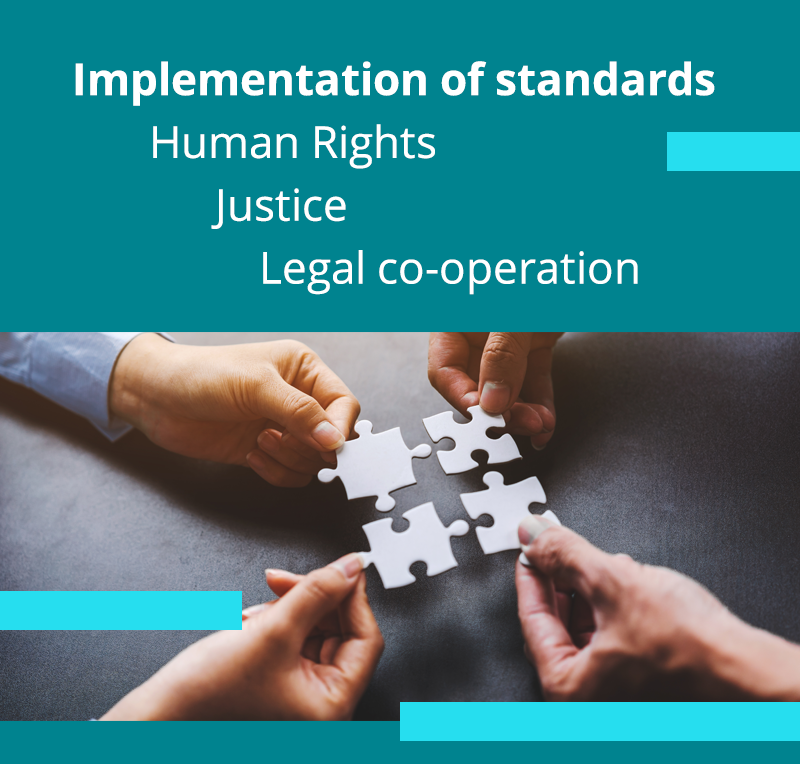Justice And Human Rights Training Division
The Justice and Human Rights Training Division has two main functions, aimed at fostering professional training and university education in human rights.
(1) It implements the Council of Europe HELP Programme (Human Rights Education for Legal Professionals), conducting activities under both the Council of Europe’s ordinary budget and co-operation projects. HELP stems from Recommendation Rec(2004)4 of the Committee of Ministers, replaced by Recommendation CM/Rec(2019)5 on the system of the ECHR in university education and professional training. The Division develops training courses based on Council of Europe conventions and its policy and strategic objectives on human rights and rule of law; it adapts them to national contexts and languages, addressing needs identified by Council of Europe monitoring mechanisms (including deriving from the execution of judgments from the ECtHR). The Division runs the HELP Network of national training institutions for judges, prosecutors and Bar associations. It promotes the use of HELP (online) courses among legal professionals as well as in university education (mainly law faculties). It streamlines the use of HELP courses and methodologies in all relevant projects implemented by the Department. More broadly, it supports other Council of Europe entities seeking the development/implementation of HELP courses, the use of the Council of Europe HELP e-learning platform or the HELP methodology and know-how.
(2) The Division also serves as a focal point for other projects in the Department, the main focus of which is on human rights in professional training and university education. More generally, it advises other entities and projects in the Department on activities and methodologies in these fields.
The Division contributes to fulfilling the mandate of the Department for the implementation of Human Rights, Justice and legal co-operation standards, in close co-ordination with the Department’s other Divisions. It works closely with other relevant Council of Europe entities too (monitoring and advisory bodies, intergovernmental co-operation and technical co-operation). Co-operation programmes implemented by the Division notably contribute to the implementation of Council of Europe Programming documents by country/region, as well as relevant Committee of Ministers strategies and thematic action plans (for more information on all the Council of Europe cooperation activities, see the website of the Council of Europe’s Directorate of Programme Co-ordination).
Human Rights Education for Legal Professionals (HELP) website
Human Rights Education for Legal Professionals in the European Union III (EU CoE HELP EU III)
HELP (Human Rights Education for Legal Professionals) for Ukraine including during wartime
EU/CoE Judicial Training on Rule of Law and Fundamental Rights



